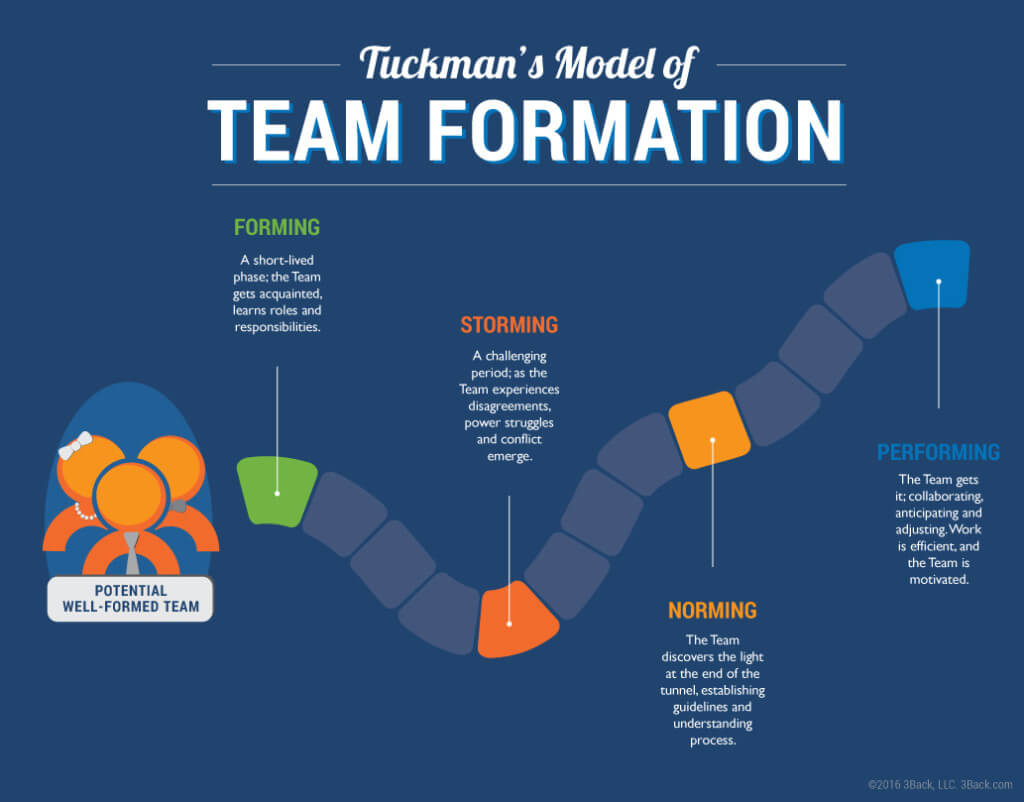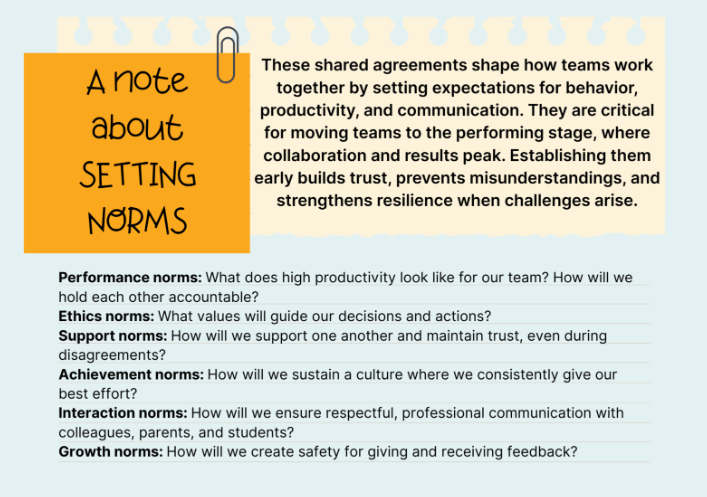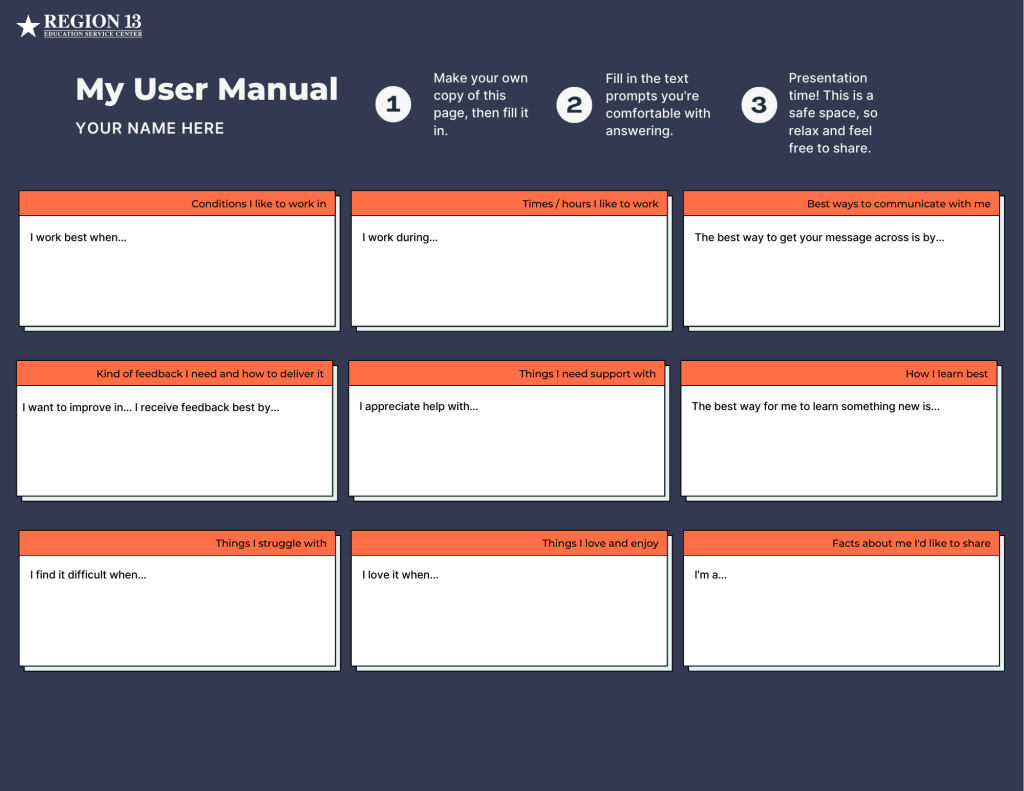Navigating the Forming and Storming Stages of Tuckman’s Model
Ask any school leader how things are going right now, and they’ll likely answer with a mix of optimism, purpose, and a lot of overwhelm. As soon as August hits, work on the campus moves at the speed of light. The first weeks are a whirlwind of schedules, systems, and new relationships for staff, for students, and for your campus community. In the middle of that momentum, proactive leaders know the value of intentionally setting the stage for their teams to build strong workflows and healthy synergy.
Why does it matter? Because the way you lead now determines whether your teams grow into a high-functioning, collaborative force or get stuck in cycles of frustration, siloed work, and inefficiency. In this article, we’ll look at Tuckman’s Model of Team Formation and go in-depth on the Forming and Storming Stages.
Tuckman’s Model of Team Formation
Let’s talk about two early stages of Tuckman’s team development model, Forming and Storming. It is likely where many of your teams are this time of year. Most importantly, we’ll share some ideas on how you can help your teams navigate these stages successfully and move to with greater ease and support to the Performing Stage.

The Forming Stage: Building a Foundation
The Forming Stage is where excitement and uncertainty meet. Whether your team members are brand-new to the career, brand-new to your campus, or veteran staff starting a fresh school year, this is a time of orientation and possibility.
Your role in the Forming Stage is to give them tight but loose systems. These systems are clear enough to guide the work, but flexible enough to let them develop ownership and confidence.
How to Support Teams in the Forming Stage
The Tuckman’s Model Forming Stage is where you earn trust, model expectations, and set the rhythm for the year. As the campus leader, your level of involvement will depend on your leadership style, the staffing and resources available to you, and the capacity of your teams to lead this. A principal might directly lead this work; however, ideally, you are able to share this leadership opportunity with the team leaders and act as a facilitator and support person.
Skills or strategies that are essential at this stage are:
- Clarify objectives, goals, and norms. Research shows that establishing these early is critical for moving successfully through the stages to Performing. (For more on clarifying goals, read our Practical Principal Cascading Goals blog article.)

- Provide clear structures and agendas. Keep meetings focused, productive, and forward-moving.
- Clear processes and built-in accountability.
- Define roles and responsibilities. Don’t leave this open to interpretation–clarity prevents misunderstandings.
- Create intentional opportunities for connection. Having team members share work and communication preferences starts collaboration on the right foot.
Get Your “My User Manual” Template
The “My User Manual” template was developed to help teams share a little about their work style, communication preferences, and goals for the year. Download your own PDF copy or digital copy!

The Storming Stage: Navigating the Rough Waters
Conflict in teams isn’t a sign of failure; it’s a sign of potential and growth. In the Tuckman’s Model Storming Stage, differences in style, priorities, and opinions surface. If navigated well, this friction strengthens relationships and clarifies direction. If left unmanaged, it can derail the team for months, which in turn can negatively impact the campus climate and ultimately student success and outcomes.
During this stage, your campus teams or departments will likely seek guidance from you, and your response will determine whether they succeed or fail.
How to Support Teams in the Storming Stage
Some teams will navigate this stage on their own, while others may need you to step in more directly. The key is to gauge the level of support they need and provide just enough guidance to keep them progressing toward the Performance Stage.
- Recenter on the goal. Remind the team of their primary purpose, which was established during the Forming Stage. This is your anchor for decision-making.
- Lean on norms. Return to the agreements set in the forming stage, especially for handling conflict.
- Use structured dialogue. Encouraging speaking from personal experience (“I” statements) and listening with the goal of understanding, not disputing what is being shared.
- Set clear next steps. Name the commitments, actions, and deadlines that will move the team forward.
Finding a Path Forward
As a Practical Principal, you might find it helpful to share the stages with your teams or departments. If we have language to name what we’re experiencing, it can sometimes help teams find a path forward. Having language to use to describe their team development is helpful, and it also reassures our staff that these are natural and normal phases of team development.
Forming and storming aren’t stages to rush through- they’re pivotal moments where the tone, trust, and trajectory of your team or department are established. How you lead during these early phases will shape everything that follows. By providing clarity around goals, structure for the work, and consistent opportunities for connection, you help your team build the habits, relationships, and confidence they’ll need to navigate challenges without losing focus.
When leaders take the time to guide their teams through these stages with intention, they do more than just get through the start of the year; they create the conditions for a high-performing, collaborative culture that lasts. The investment you make now compounds over time, turning early momentum into long-term results. That’s how strong beginnings become strong school years.
More Resources
Read more articles in our The Practical Principal series on the ESC Region 13 blog. Sign up to receive updates, workshop announcements, tips, and other helpful resources for principals here. Explore ESC Region 13 services focused on principals on our website.
Natalie is an Educator Evaluation and Leadership Administrative Specialist at ESC Region 13.






Add comment